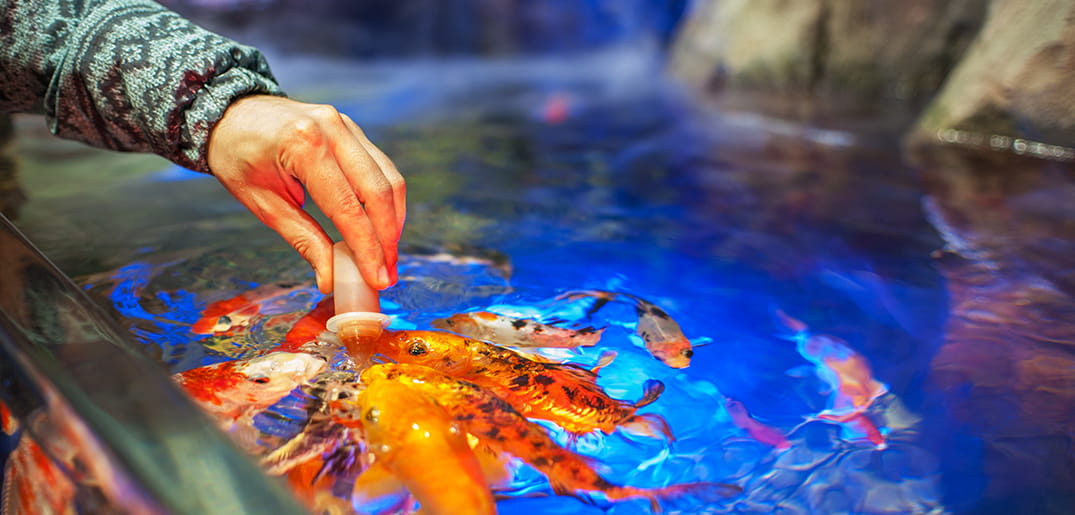Taking care of koi is not easy and something you can do at your own time. Koi are prized animals, often expensive, and require a regular feeding schedule as well as other types of care. If you have koi or plan to get some, be sure you know these tips for feeding koi so that your fish grow healthy and happy.
Avoid Cheap Food; Stick To High-Quality Fish Food
Just like humans, koi are omnivores. In the wild, they consume a variety of foods like algae, bugs, plant matter and animal matter. Koi in ponds are at the mercy of what you choose to feed them, so giving them quality food is important. Cheap koi food tend to be full of fillers and old ingredients that have lost their nutritional value. If koi eat the food, most of it will pass through their bodies and go to waste, lowering the water quality in your pond. Be sure to always feed your koi high quality food and supplements.
Feed Regularly
Consistency is key in breeding healthy and happy koi. Koi fish are smart, and they are able to detect a feeding routine. They will expect food when it comes to feeding time, and if you are not there to feed them it will affect their health and growth ability. If you can only manage to feed them at 7am before leaving for work and then 7pm after you come back, that’s okay, but you must be consistent about it. And if you are away on vacation, get a vacation feeder block to give you peace of mind that your fish will be fed.
Feed Frequently
Koi have no stomachs, so they cannot eat large amounts of food and then digest the food later. They need to eat small amounts frequently. Furthermore, the water temperature also affects a koi’s feeding habits. Colder temperatures slow down a koi’s metabolism and vice versa, hence in the summer koi tend to eat a lot more and in winter they sometimes do not eat at all. One way to handle the highly involved process of continual feeding and also adapting to seasons is to use an automatic feeder. Auto feeders take out the mystery in feeding koi for you, by calculating the right amount of food needed based on your feeding schedule and water temperature. In particular, if you have to be away from your pond for long hours or have a sudden emergency that does not allow you to be able to feed your koi, the auto feeder can be a lifesaving backup feeder.
Do Not Overfeed Your Koi
While it may be tempting to feed koi as much food as they can possibly eat, one has to be mindful of not overfeeding. As a gauge, you should only feed them the amount of food that they can finish in around five minutes. If there is any leftover food after 10 minutes maximum, scoop it out so that the fish will not eat it and also it does not ruin your water quality.
Give Human Foods As Occasional Treats Only
You may have heard that koi fish do enjoy the occasional fruit and vegetables, such as oranges, watermelon, and even cereals. It is fine to feed your koi these treats every once in a while, as long as you remember to not feed them treats too often especially for cereals, and to clean out any leftovers. Koi nutrition would come from the koi pellets they are fed, so their health and beauty would be intact and treats would be more to supplement their well-being.


 Blog
Blog



